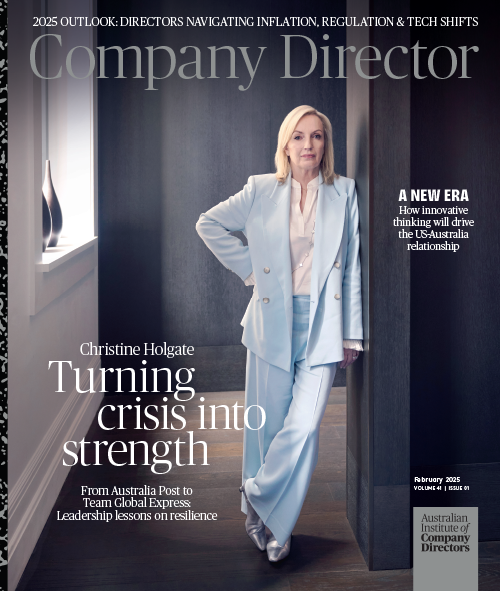Power has transitioned from organisations to people, from profit to mutual prosperity, from “me” to “we”, notes global consultancy KornFerry. This tectonic shift in workplace dynamics poses an existential threat for unprepared organisational leaders, the firm says in its Future of Work Trends 2022: A new era of humanity report, where it calls on businesses to respond to the new power dynamic “in kind”.
1. Reinvention
Accelerated digital transformation across all sectors and industries is creating new jobs, business models and ways of working. Some 69 per cent of the world’s “most admired companies” value learning agility and curiosity over career history and experience when it comes to hiring, according to the KornFerry Future of Work Trends 2022: A new era of humanity report; and 64 per cent of the world’s most admired companies say they have a good understanding of workforce needs two or more years into the future, compared to 54 per cent of their peers.
“We are used to thinking about work in terms of jobs. But with the nature and structure of work changing rapidly, this may no longer be helpful. Successful organisations are shifting their thinking towards the capabilities needed to win in their marketplace,” the report says.
Successful companies are using strategic modelling of future workforce options, clarifying future roles, skills and mindsets in order to execute reskilling, upskilling, recruitment or “gig-economy” tactics to develop long-term workforce planning. They then focus on sourcing and developing these through reskilling, upskilling, recruitment or drawing on the wider gig economy of flexible workers.
2. Scarcity
The “Great Resignation” is now commonly understood, with companies needing to urgently prioritise attracting and retaining talent — 74 per cent of professionals believe employee turnover will only increase in the coming year; 37 per cent say upskilling/reskilling current employees is the top way they are addressing the labour and skills shortage. KornFerry says the top five predictors of retention for employees intending to stay at a company longer than five years are: opportunities to achieve career goals (69 per cent), trust and confidence in companies’ senior leadership teams (75 per cent), companies showing care and concern for employees (76 per cent), effective management of the company (70 per cent), and opportunities for learning and development (75 per cent).
Leader accountability is core to understanding how to stem a worker exodus, says KornFerry. “In 2022, the trend will be to step back and find out why people are leaving organisations, or even the workforce. Is it the pay? The benefits? The culture? The business model? The location? What types of employees are leaving?”
3. Vitality
The economic burden of unwell workers is evident with 10–15 per cent of global economic output. Sample costs from the US show more than US$1 trillion lost to chronic disease, US$550b to disengagement, US$300b to workplace stress and US$250b to injury/illness.
“Companies face the economic burden of sickness and stress, both in medical expenses and lost productivity,” says KornFerry. “And remote working has given employees a greater understanding and concern for their own wellbeing. They want companies to act more human.”
It expects more organisations to increase their “wellbeing maturity” levels, shifting away from the compliance approach and embedding wellbeing into organisational purpose.
4. Sustainability
The partial takeover of ExxonMobil’s board by a climate activist hedge fund foreshadows the escalating ESG expectations of company stakeholders, according to KornFerry. It found the proportion of S&P 500 firms using ESG metrics in their incentive plans has risen from 44 per cent to 60 per cent in 2022.
“We think the time has come for a more people-focused approach to ESG,” says the report. “Working tirelessly with environment scientists to find a path to net zero is important. But if you aren’t considering how your people are going to take you down that path, your efforts are bound to fall short.”
KornFerry says the board’s role in delivering an ESG strategy is critical, with a clear need for directors to focus on aligning priorities, integrating challenge management, ensuring data is flowing to the boardroom, rewriting charters to position ESG as a business imperative, engaging with stakeholders, considering ESG-linked compensation and making the appropriate disclosures.
5. Individuality
Korn Ferry research found 36 per cent of professionals say they plan to take a different job in the near future because the pandemic has allowed them to re-evaluate what they want and the change they need. They say “variable customisations” will become more popular so employees have greater autonomy over their experiences at work, and predict companies will start to embrace user-led design to mirror competitors and use persona-led analytics to inform workforce decision-making.
6. Inclusivity
Despite the well-documented business case for diversity, equity and inclusion (DE&I), many organisations still view DE&I in terms of risk rather than opportunity. The majority are still engaged in early-stage activities such as developing DE&I strategy (61 per cent) and unconscious bias training (58 per cent). Some 77 per cent have developed non-discrimination, bullying and harassment policies compared to 31 per cent that have integrated DE&I into business operations and remain low on the DE&I maturity scale.
KornFerry says leaders will need to “overcome bias, break down siloed working practices and build a culture of true inclusion where everyone has a voice and feels valued for who they are”.
7. Accountability
Since the pandemic forced people home, many leaders have wondered, “are our people really working?” According to a recent survey by Express VPN, 78 per cent of firms are using software to measure employee productivity. But accountability is about a lot more than monitoring keystrokes, it is about building a culture to support it. Clear expectations, frequent check-ins, continuous feedback and set deadlines mean only the most self-disciplined, collaborative employees will thrive. The C-suite will also have increased accountability. If they don’t, the organisation risks losing out on talent, customers and profit.
Latest news
Already a member?
Login to view this content


